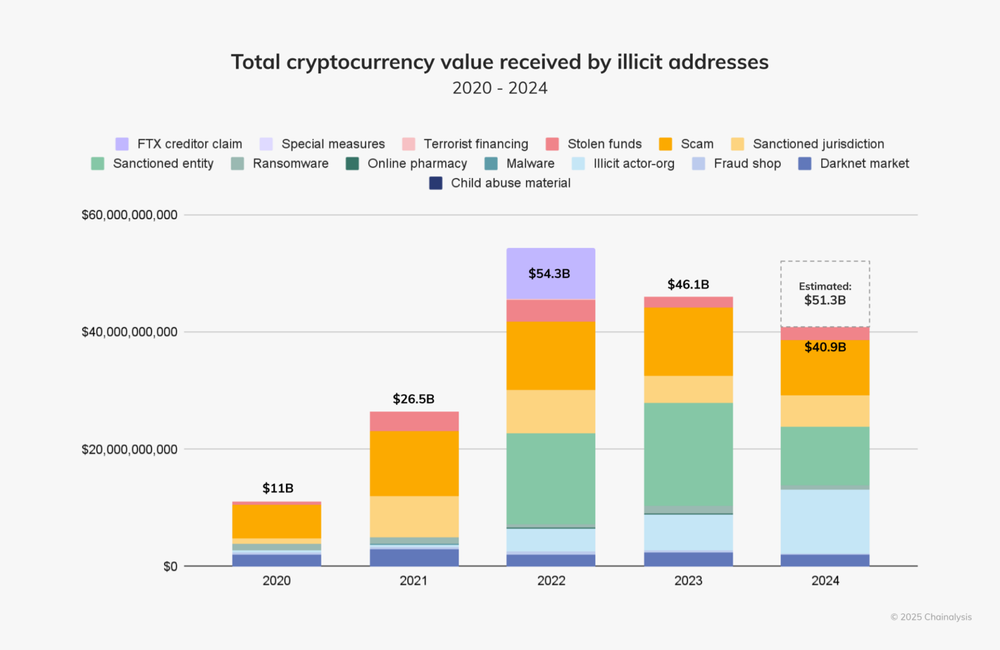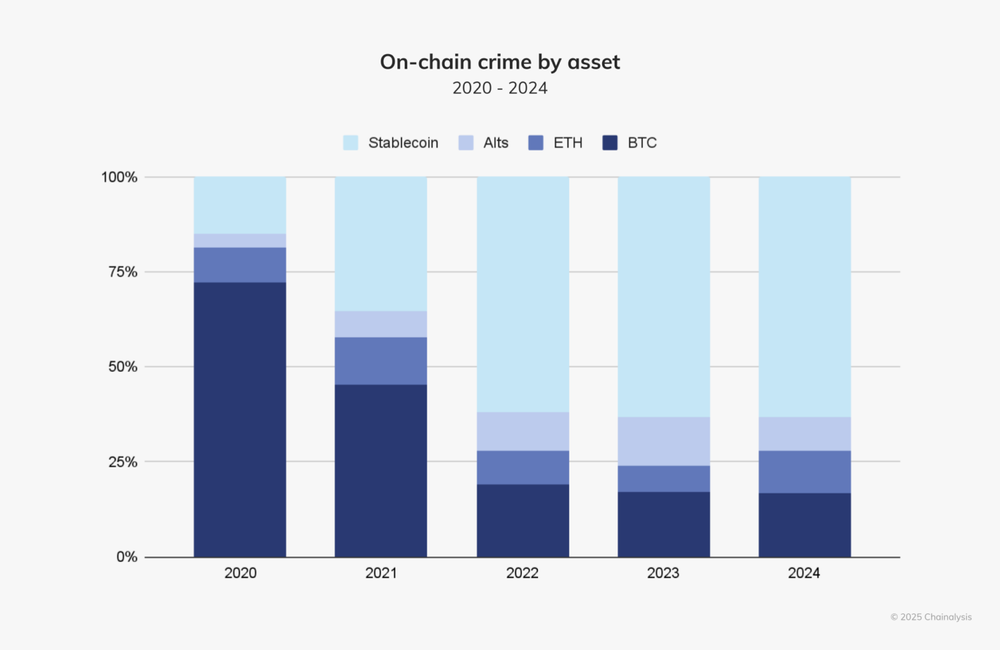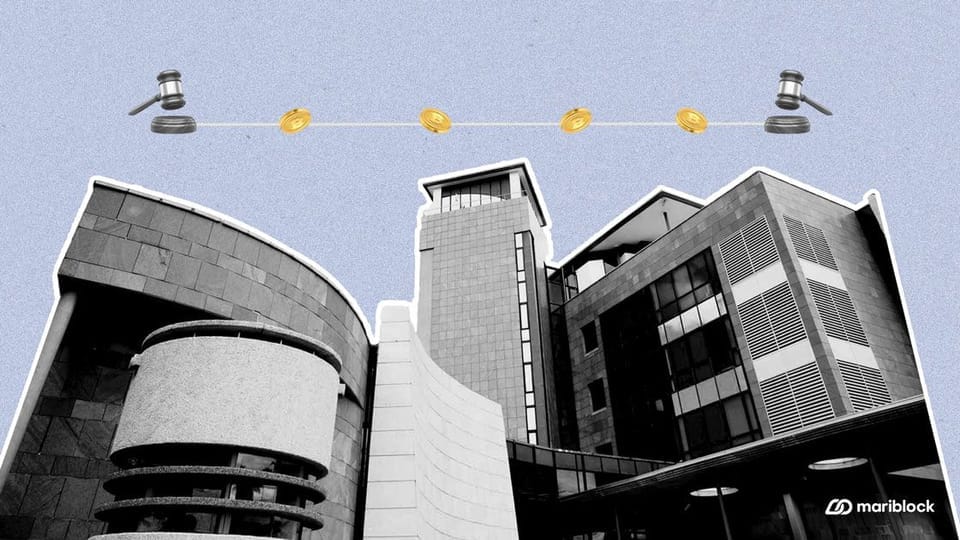🟠 Stablecoins: proving to be stable, even in shady business
Plus: 🇰🇪 Kenya issues draft policy to regulate virtual assets 🇳🇦 Namibian central bank grants provisional licenses to two crypto firms

It’s been a while—and by “a while,” we mean way too long. But we’re back on the block (pun fully intended) like we never left!
We’ve missed sharing these insights with you and are thrilled to return to spotlighting Africa’s blockchain brilliance.
In this first edition of 2025:
- Chainalysis reveals stablecoins are holding steady as a favorite in crypto crime.
- Kenya and Namibia are making bold policy moves to catch up with South Africa in the race to become Africa’s blockchain hub.
- Visa’s fintech accelerator is accepting applications (details at the end of the newsletter)
Welcome back to Mariblock Weekly—let’s make 2025 one for the books! 🥂
Stay up-to-date with the latest blockchain developments in Africa
Crypto crime proceeds valued at $40.1 billion in 2024—Chainalysis

Topline: Chainalysis, the blockchain analytics firm, reports that illegal cryptocurrency activities worldwide totaled $40.1 billion in 2024, representing just 0.14% of global on-chain value.
- While lower than 2023’s $46.1 billion, the firm expects this figure to be higher as more data comes in. (Details)

Of note: Chainalysis begins each year with conservative estimates for illicit crypto transactions and updates the data as new links to illegal activities emerge.
- Transactions may initially appear legitimate but are later classified as illicit and added to the total crime volume once linked to off-chain criminal activities.
- Case in point: 2023’s initial estimates of $24.2 billion were later revised to $46.1 billion as new data emerged.
- Chainalysis defines crypto crime as transactions linked to illegal addresses or stolen funds.
The firm found that criminal groups like traffickers and launderers are increasingly using crypto. In 2024, $10.8 billion, or 26.4%, of the $40.9 billion in illicit crypto value went to such organized actors.
- Stablecoins have led criminal crypto activity for the third year, making up 63% of illicit transactions.

- Still, some illegal activities, such as the sale of ransomware and darknet materials, remain almost exclusively denominated in bitcoin.
- Stolen funds rose 21% year-over-year to $2.2 billion, with the largest chunk coming from DeFi services.
Kenya issues draft policy to regulate virtual assets

Topline: Kenya’s National Treasury and Economic Planning has introduced a draft policy to guide the regulation of virtual assets and service providers (VASPs) in the country. (Details)
- The agency seeks public input and hosting forums to refine its cryptocurrency oversight framework.
The details: While crypto is not explicitly banned in Kenya, there is still a glaring lack of a central and binding body of rules to guide crypto usage across board.
- The country’s latest move seeks fair treatment of customers rather than prescribing detailed rules.
- Kenya aims to design its crypto regulations by drawing insights from global bodies such as the FATF, IMF, and Financial Stability Board.
- It is also studying regulatory approaches from countries like the UK, France, the USA, Singapore, Mauritius, Nigeria, and the EU.
Of note: Despite the Kenyan government’s flickering stance on crypto regulation, Kenya is the largest crypto market in East Africa and ranks among the top five by volume across the continent.
Namibian central bank grants provisional licenses to two crypto firms

Topline: In Namibia, the central bank has issued two companies provisional six-month licenses under the Virtual Assets Act of 2023.
- During this period, the firms must meet requirements to secure full licenses. (Details)
The details: Within this period, the recipients, Mindex Virtual Asset Exchange and Landifa Bitcoin Trade CC, are permitted to operate in a regulatory sandbox-like environment and are restricted from conducting business with the public.
Flashback: In 2018, the Bank of Namibia (BoN) publicly opposed the use of cryptocurrencies as a payment method for goods and services.
- By 2022, BoN reversed its stance, allowing bitcoin to be used for payments at a merchant’s discretion, although it remains non-legal tender in the country.
- In June 2023, Namibia’s National Assembly passed a bill to recognize and regulate digital assets despite resistance from the BoN.
- The BoN maintained that cryptocurrencies held no legal status despite the bill being signed into law a month later.
- The law bans foreign-based crypto exchanges and requires VASPs to maintain records of individuals transacting on their platforms.
Catch up

🌍 Verda Ventures partners with Opera to launch a $40 million MiniPay fund (Mariblock)
🇿🇦 South Africa’s FSCA licensed 248 crypto firms in 2024 (Mariblock)
🌍 Web3 Was the Most Funded Sector in the MENA Region in December 2024 (BitcoinKE)
Opportunities
VISA opens applications for Cohort 4 of its Africa Fintech Accelerator Program. Deadline: March 25, 2025. (Details )
That’s it for this week.
See you next week.
Cheers,
Ogechi.



